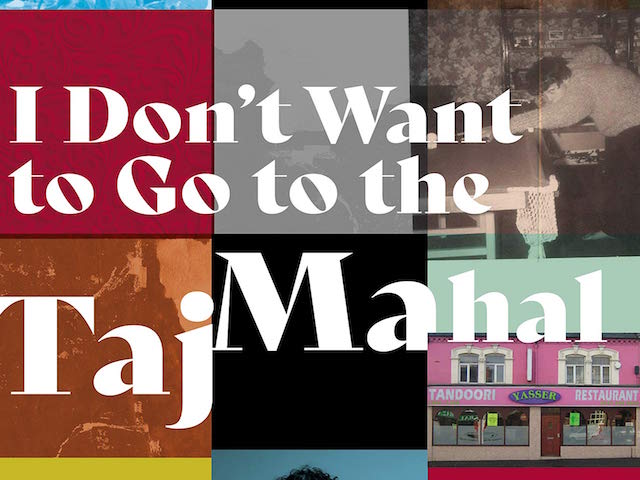Jess Sturman-Coombs reviews “a vision of drinking, drugs, culture, sex, politics and masculinity” in Charlie Hill’s ‘I Don’t Want To Go to the Taj Mahal.’
This story reminded me of Jack Kerouac’s ‘On the Road’ to the extent that Charlie Hill takes the reader on a journey through his life, from one job to another, drinking, taking drugs, betting, moving through relationships, into and out of social groups, travelling and living with often little or no money (and carving out a pretty successful existence and career despite this!).
He publishes and makes reference to what sound like some fascinating articles, stories, books and reviews along the way, and he meets a number of interesting and influential people. I would suggest that it’s less complex than Kerouac’s work, and I hope that this is not seen as a criticism. The reader is just not expected to retain any specific detail as to the people and places that Hill refers; I found that quite refreshing. He introduces, we observe their part and place in the story, and then we move on. And it’s apt because, when you think about it, that’s how life plays out in real-time. People come, people go, few stay long enough to justify great long chapters about the colour of their socks and what they liked to eat for dinner.
The style of this memoir consists of short to medium-sized paragraphs that capture a snapshot of time in a series of vignettes that appear as one entry per page. This makes it very easy to pick up and put down, dipping in and out as time allows, without feeling like you’ve interrupted any sort of forward motion. Each section exists independently, so (not suggesting anyone would or should) you could realistically take a break and still be able to pick back up where you left off. This particular aspect will appeal to people who have a limited amount of time at their disposal, or those who struggle with (or are put off by) too much detail.
What I liked most was the cleverness of the writing. I had a real appreciation for Hill’s ability to construct short passages that set out the situation, letting the reader join the dots and make the conclusions. He writes less yet says more, which is a sophisticated art form. It was the things that were simply alluded to that I found most entertaining. I found this extract particularly funny:
The lime-green mini overtook us and my ex got out, berating. We walked on. The lime-green mini overtook us and my ex got out, berating. We walked on. The lime-green mini overtook us and my ex got out, berating. We took a shortcut through a park.
Initially, I thought there had been an error and then I realised the joke was on me. The visual finally caught up with the repetition and I found myself laughing over the ridiculous nature of the whole scenario. Those people intent on having their say and those who would rather walk through a dark park than listen to them.
The story is, for the most part, set in Birmingham (though Hill does travel overseas). I don’t think it matters if the reader doesn’t know the city, though I imagine it’s a nice way to reminisce. I feel it will immerse local people on an entirely different level, having walked the streets and likely frequented the very same venues. I happen to know a few proud ‘Brummies’ who I am sure would take great pleasure and comfort in reading about the exploits that have gone on in their hometown.
Hill makes you reflect on the way life unfolds naturally; often we trip through time and space, balancing momentarily between this job or that relationship. This is a series of accounts, and not all are revelations. Many are gentle or amusing observations and anecdotes. It feels genuine. Should Hill have talked of constant parties, sex, drugs, alcohol and near-death experiences, this would have felt contrived and gratuitous. An opportunity to play up to the reader in an attempt to please. Instead, Hill tells you what he recalls, in his own clever way. A natural retelling of his life’s journey.
You get a real sense of Hill’s West Midlands personality too. He’s witty, laid back, and keen to experience what life has to offer. The whole story feels like a few hours sat across a circular wobbly table down the local. This is a relaxing, easy read, with little in the way of colour and texture. I’m not sure we ever hear how he’s feeling or what he’s thinking, but any knowledge of what it’s like to muddle through, make ends meet, get swept up into different crowds and trends and people and places, to love to lose, to win jobs and sometimes get the sack, means this story will relate to a great many readers.
I would love to know what other people’s experiences are with this book and I have recommended it to some of my West Mids friends, to hear whether their experience is enhanced by their personal knowledge of the Birmingham area. If you enjoy memoir this could be just the right book for you. Further, if you’re strapped for time then it’s perfect; I forgot I had it and then read it in just a few hours!
You can buy a copy of Charlie Hill’s “I Don’t’ Want To Go to the Taj Mahal: Stories of a Birmingham Boy” here
